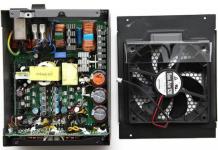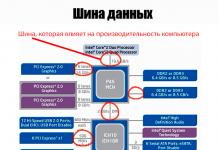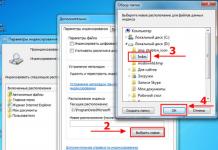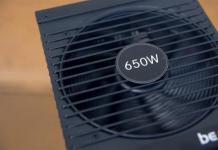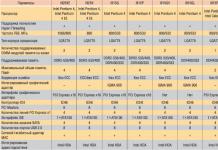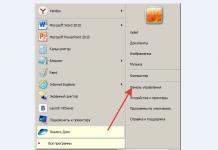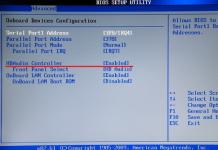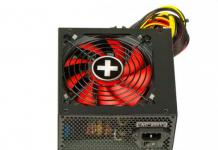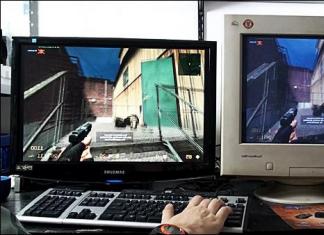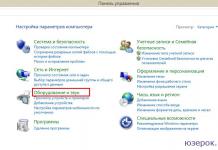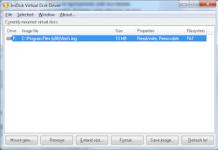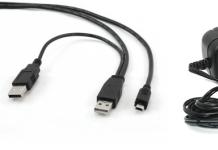Good day, readers of my blog with you Denis Trishkin.
Probably, every user is not pleased if the computer suddenly stops functioning correctly. Especially when the sound does not work on Windows XP or newer editions. Most interestingly, there can be many reasons, ranging from simple software glitches to problems with the motherboard. I will try to tell you about all possible options for correcting the malfunction.
As funny as it is, one of the most common reasons why the sound on the computer does not work is the wrong connection. Installation instructions must be included with each equipment. Better to double check. In most cases, the speakers are connected to a 220V network, and in a computer on the back or front panel to the corresponding green input.
increase
More complex systems are sometimes encountered. It is with them that problems arise. All ports that are connected with sound are involved there.
If you are sure that everything is connected correctly, it is worth paying attention to other possible reasons.
Drivers( )
An equally common cause is driver-related problems. This is especially true if the computer has a separate audio card.
Now we need to check the hardware itself:
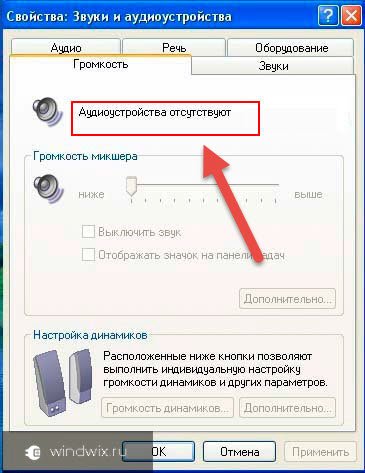
Sound card manufacturers usually complete their products with a disc with the necessary software. If you don't have something like this, try to find it on the Internet.
Realtek( )
If the computer has an integrated sound card (built into the motherboard), there is a 99% chance that it will be a chip from Realtek. In the "Control Panel", such components are defined as "". The manufacturer has its own software for them. You can find it on the official website. The main thing is to indicate the correct operating system and its bitness.
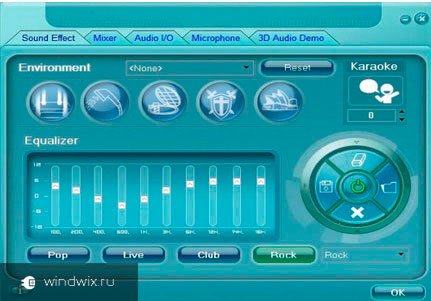
Important! Usually in the "Control Panel" equipment for which the system could not find a driver is marked with an exclamation mark on a yellow background. At the same time, although Realtek does not have such a mark, it nevertheless does not work.
Sound Max( )
When all the previous options did not help, we try to find and install the third-party Sound Max 1988B Audio software. It is considered universal and suitable for various cards. Usually this option helps out when the nerves are already starting to give up.
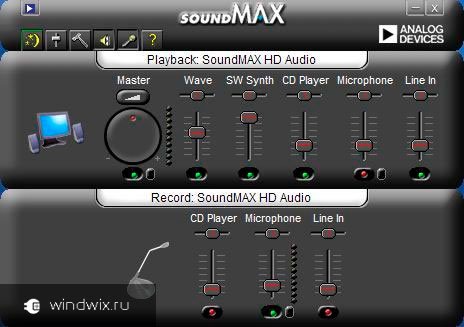
Atypical manufacturer( )
If the previous option did not help out either, we solve the problem using a standard approach. For this:
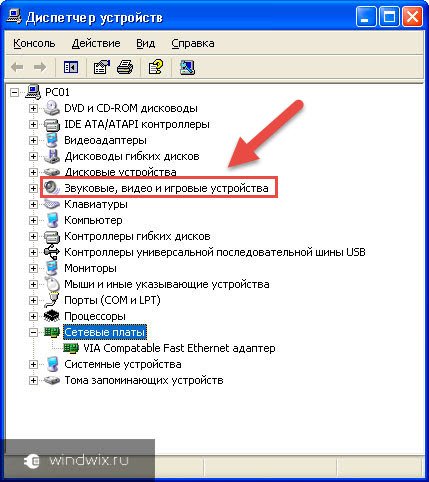
Run the file, follow the instructions, and reboot. In this case, everything should definitely work.
If the drivers are installed, you need to pay attention to additional programs.
Codecs( )
After a quick search on the Internet, you find that codecs are special devices or "applications" that encrypt / decrypt signals, including audio. Often there may be no sound because of them.
Many users, after reinstalling the system or the same driver, often forget to re-configure the codec.
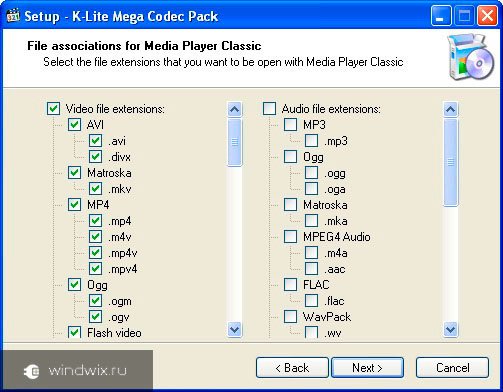
The most common today is the K-Lite Codec Pack, which can be found on the Internet. You just need to download and install it. Better to reboot after that. Everything should work. But what if that didn't help?
Rarely, but still there are cases when, for some reason, the sound card is turned off at the hardware level.
BIOS( )
To enable audio playback on your device, you need to correctly set the BIOS settings, or rather, enable the corresponding component in this section.
To do this, reboot and press the " Del", Which in most cases will launch the required window. Sometimes other buttons will help to do this - you need to carefully read the data on the monitor.
After that, you need to find a suitable menu. Difficulties may arise here, because each manufacturer establishes its own order and names of items. So, for example, in the system from American Megatrends, users will find the required line in Advanced, in the Onboard Devices Configuration subsection.
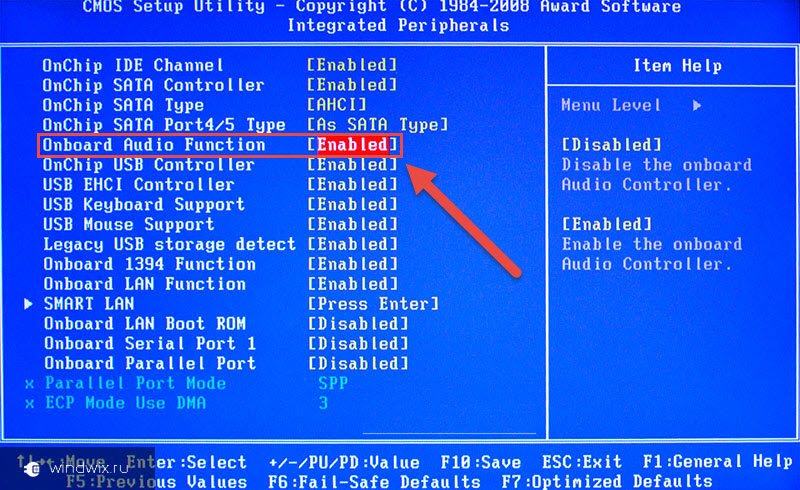
increase
If the manufacturer is Award, look at Integrated Peripherals. The option should be called HD Audio. On older motherboards, the item may be called AC97.
In any case, you need to find a suitable line and include it. After that, it is enough to save and reboot the device.
Enabling audio hardware in BIOS is a rare cause of no music playback. But in some cases it still occurs.
Well, you can see that there can be many reasons for the lack of sound on a personal computer or laptop. Starting from a simple connection, and ending with the inclusion in the BIOS. Despite this, most often the problems are associated with the lack of a driver. Install it and enjoy your music.
If all of the above does not help, it may be worth considering reinstalling the operating system, as the reason may be related to other Windows components and hardware.
Hope this article helps you solve the problem. Subscribe and tell your friends about my blog so that they can quickly deal with any difficulties that arise when working with a PC.


